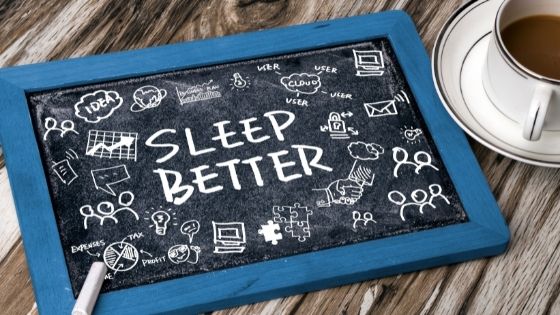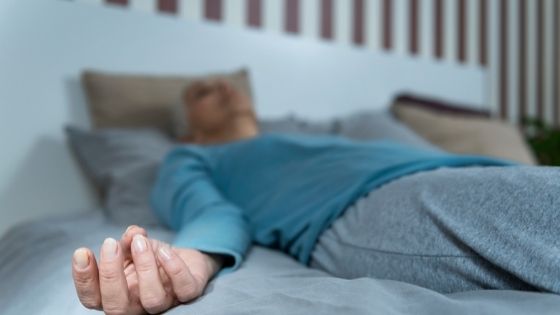Sleep is the most essential function of our body that keeps regenerating and gives it the desired energy to continue for the next day. We cannot do without our sleep as it is perennial to our existence. But there is a wide variety of obstructions to our sleep that could help us sleep better if rectified.
Ponder every one of the major elements that can obstruct a decent night’s rest – from work pressure and family obligations to unforeseen difficulties, like diseases. It’s no big surprise that quality rest is, in some cases, slippery.
While you probably won’t have the option to control the elements that obstruct your rest, you can take on propensities that energize better rest. Begin with these straightforward tips
Wear Warm Clothes To Sleep
If you’re having trouble sleeping, try one of these easy ways to improve your sleep. Wear warm clothing when you go to bed, so your hands and feet stay warm. This will allow cool blood to flow through open channels close to the skin’s surface and lower your body temperature. This will actually help you fall asleep faster and stay asleep more soundly.
Apart from the above practices, you also need a comfortable mattress to sleep in a better way. But there is often a question about which mattress we need to choose to sleep in as there is a visible distinction between hard vs. soft mattresses. Supportive bedding feels firm to the touch. When tension is applied to a milder sleeping cushion, it will rapidly pack. It’s crucial to note that the sleeping cushion feel isn’t just partitioned into two gatherings; all things being equal, it’s a continuum. This implies you have numerous choices, which can be something worth being thankful for or something terrible.
Check on your food and drinks intake
Try not to head to sleep eager or stuffed. Specifically, stay away from big dinners inside several hours of sleep. Your uneasiness could keep you up.
Nicotine, caffeine, and liquor merit act as an alert as well. The animating impacts of nicotine and caffeine require hours to wear off and can destroy quality rest. What’s more, even though liquor could cause you to feel sluggish, it can upset rest later in the evening.
Induce more physical activity
Standard active work can advance better rest. Do not be active all the time near bedtime. Be that as it might. Investing energy outside consistently may be helpful, as well.
Oversee stresses
Try to identify your worries or concerns prior to going to bed. Write down what’s at the forefront of your thoughts and put it away for later. Stress the executives could help. Begin with the rudiments, for example, getting coordinated, laying out boundaries, and appointing errands. Reflection likewise can ease nervousness
Stick to a sleep schedule
Start going to bed at the very same time each night. You need about seven hours of sleep each night to maintain a healthy lifestyle, but most people don’t need that much. Also, try to set your alarm to wake you up at the same time every day, and stick to it. This will help you form a proper sleep schedule and reinforce your sleep-wake cycle. If you still can’t fall asleep, step out of the bedroom and do something relaxing.
Get rid of blue light
Turn off bright lights two hours before you go to bed. Your body secretes melatonin during the night, but it stops as soon as the light hits it. Avoid using your phone or computer as much as possible, and use light-blocking shades or eye masks to keep out the blue light. If you’re having trouble sleeping, these tips will help you get a more restful night’s sleep.
Create a comfortable environment
Your bedroom should be calm and dark. This will assist you in falling asleep more easily. The light you see during the day can interfere with your sleep. So, make sure to make your room dark before bedtime to prevent light from disrupting your sleep. You’ll also basically want to limit the amount of time you spend watching TV, reading a book, and listening to music before you go to bed. The last thing you want is to be awake for hours on end, so try to avoid blue light from charging devices.
The first step to basically improving your sleep is to reduce your exposure to light. The darker the room, the more melatonin will be produced. A dark room will be the best environment for melatonin production. It will help block out the light around the clock and avoid sunlight while you’re sleeping. Additionally, it will help you sleep more soundly. This means avoiding distractions and tossing and turning while you’re trying to get the rest you need.
Be aware of when to call your primary doctor
Almost everybody has an infrequent restless evening – however, assuming you frequently experience difficulty dozing, contact your primary care physician. Recognizing and treating any hidden causes can assist you with improving the rest you merit.
Apart from all the above practices, another thing that helps you get a peaceful sleep is a good mattress. Still, mattresses can get dirty and unhygienic if they are not appropriately maintained. Sometimes mattresses also accumulate stains that are difficult to remove. But you can use baking soda to clean stains
Avoid working on your bed
Aside from limiting light, try to avoid working in bed. Using electronics in bed is a significant distraction. Instead, try to focus on the feelings in your body. Practice breathing exercises to basically calm your mind and relax. They can help you sleep soundly in the long run. And, if you’re not getting enough sleep, consider a sleep study to determine what’s causing your sleeping problems. If you’re unable to fall asleep, turn off the lights.
Conclusion
Some people may find that their lifestyle habits are the reason for their sleep problems, but they don’t necessarily have to be difficult to change. One such personal lifestyle habit is going to bed early, so if you find yourself waking up at 3:30 a.m. and cannot get to sleep, do something boring until the time you reach your bedtime. Your brain will naturally think that it’s time to sleep, so you’ll have an easier time falling asleep. Another habit is drinking too much alcohol or caffeine before bed. If you’re not getting enough sleep, you may want to consider treating your problems.


















